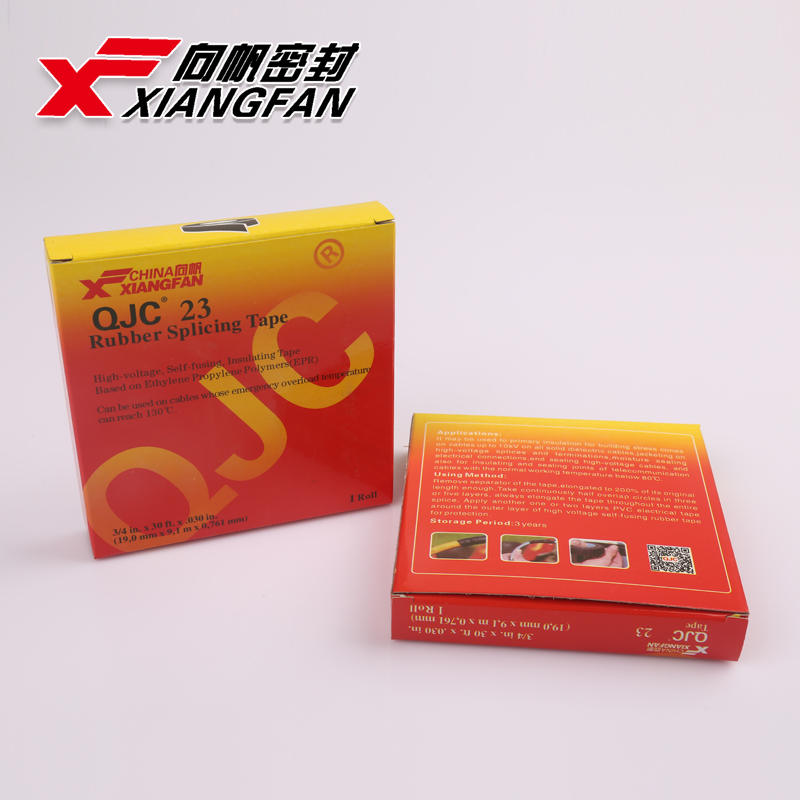Understanding Insulation Tape Types A Comprehensive Guide
Insulation tape, also known as electrical tape, is a crucial component in various electrical applications. It is designed to insulate electrical wires and other conductors, providing protection against short circuits and electrical leakage. However, not all insulation tapes are created equal; they come in different types and materials, catering to different needs and environments. In this article, we will delve into the various types of insulation tape and their specific applications.
1. Vinyl Electrical Tape
Vinyl electrical tape is one of the most common types of insulation tape used in residential and industrial applications. Known for its versatility and durability, it is made from polyvinyl chloride (PVC) material. Vinyl tape is highly resistant to moisture, abrasion, and chemicals, making it ideal for both indoor and outdoor use. It typically comes in various colors, allowing for color-coding in electrical systems. Its elasticity ensures a snug fit around wires, which enhances insulation and protection against electrical currents.
2. Rubber Insulation Tape
Another popular choice is rubber insulation tape, which is often used for high-voltage applications. This type of tape provides excellent electrical insulation properties and has a high resistance to heat and moisture. Rubber insulation tape is typically thicker than vinyl tape and can withstand extreme temperatures, making it suitable for outdoor and industrial environments. It is also self-fusing, meaning that it bonds to itself when stretched, providing a secure and seamless insulated layer.
3. Double-Sided Tape
Double-sided insulation tape is often used for more specialized applications, such as bonding and sealing. This type of tape has adhesive on both sides, allowing it to stick to two surfaces simultaneously. It is particularly useful in situations where traditional mounting methods may be unsuitable or impractical. Double-sided tape is not just for electrical insulation; it is commonly used in automotive and construction applications for attaching insulation materials or securing components.
insulation tape types

For tasks involving high temperatures, heat-resistant insulation tape is essential. Made from materials such as silicone or fiberglass, this tape can withstand extreme heat without losing its adhesive properties. It is commonly used in electrical systems that generate significant heat, such as motors and transformers. Heat-resistant tape is also suitable for applications in industries like aerospace and automotive, where thermal endurance is critical.
5. Self-Amalgamating Tape
Self-amalgamating tape, also known as self-fusing tape, offers a unique solution for insulating and protecting electrical connections. This type of tape does not have any adhesive; rather, it fuses to itself when wrapped around an object. This creates an impermeable barrier that provides excellent insulation against moisture, abrasion, and chemicals. Self-amalgamating tape is often used in marine and automotive applications where flexibility and durability are needed.
6. Fabric Tape
Fabric insulation tape, made from woven textiles coated with adhesive, is another option that offers good insulation properties. This tape is often used in applications where aesthetics are a concern, as it can be easily painted over and provides a neater appearance than traditional vinyl tape. Fabric tape is also flexible and can conform to various shapes, making it ideal for wiring harnesses and bundling cables.
7. Foam Tape
Foam insulation tape is primarily used for sealing gaps and providing thermal insulation in addition to electrical insulation. Made from soft, compressible foam, this tape is excellent for weatherproofing doors and windows in residential buildings. While it may not have the high electrical insulation properties of other tapes, foam tape is effective for applications that require cushioning or shock absorbance.
Conclusion
Choosing the right insulation tape is essential for ensuring safety and efficiency in electrical applications. Each type of insulation tape has its unique properties and intended uses, ranging from general-purpose vinyl tape to specialized heat-resistant and self-amalgamating tapes. Understanding these differences can help you select the right insulation tape for your specific needs, ensuring that your electrical systems remain safe and reliable. Always prioritize quality and suitability over cost to ensure optimal performance and safety in your electrical projects.
-
XIANGFAN Rubber Tape-Ultimate Solutions for All Your Insulation NeedsNewsJun.24,2025
-
XIANGFAN Rubber Tape-Protection for Industrial and Residential ApplicationsNewsJun.24,2025
-
XIANGFAN Rubber Tape: Superior Safety and Sealing for Demanding EnvironmentsNewsJun.24,2025
-
XIANGFAN Rubber Tape: Reliable Solutions for Every Electrical ChallengeNewsJun.24,2025
-
XIANGFAN Electrical & Industrial Tape: Powering Reliability Across IndustriesNewsJun.24,2025
-
XIANGFAN Electrical & Industrial Tape: Excellence in Every ApplicationNewsJun.24,2025
